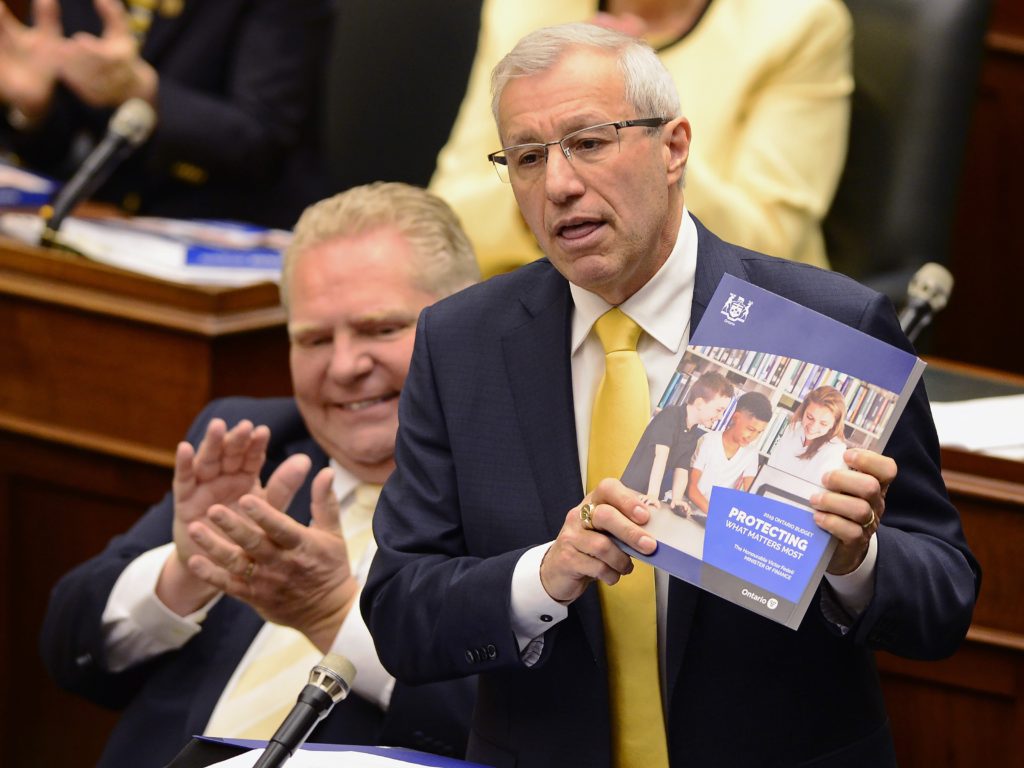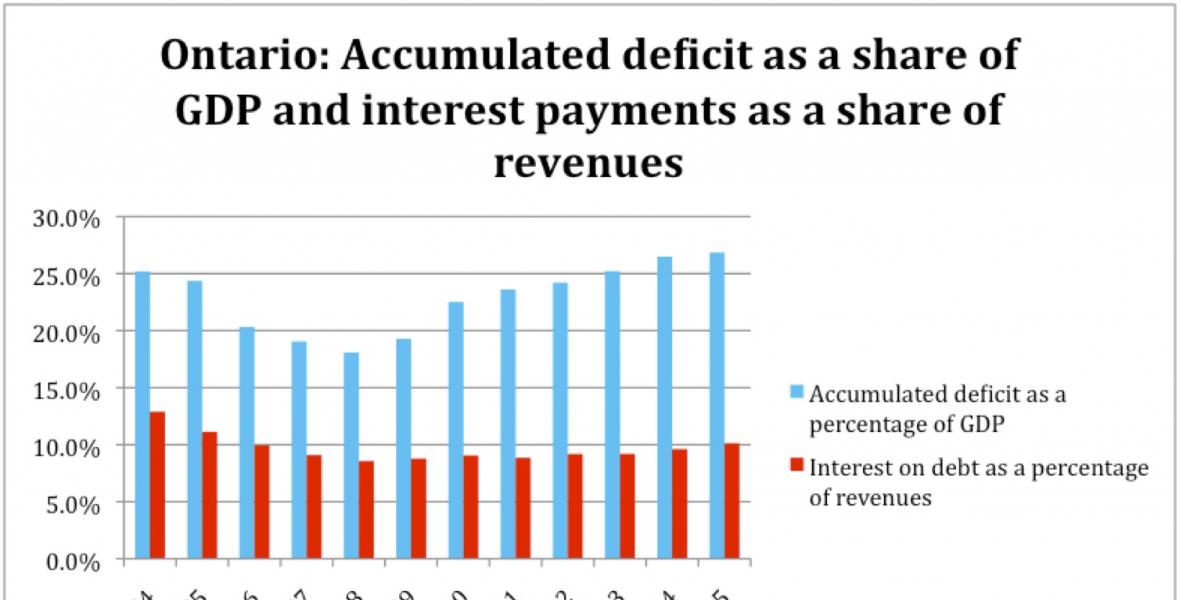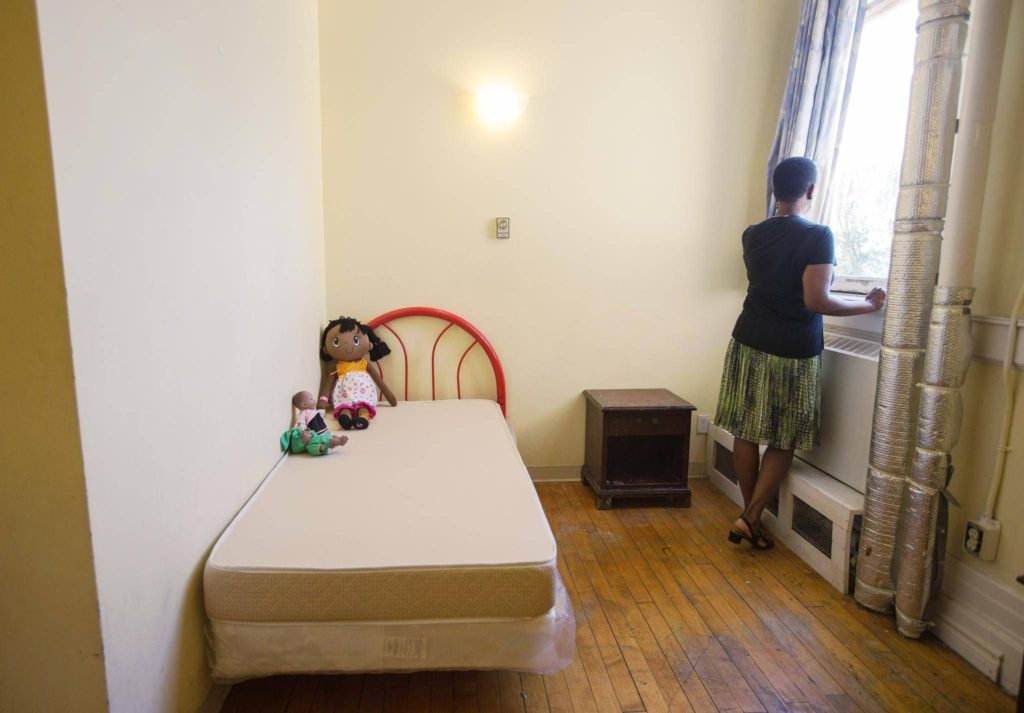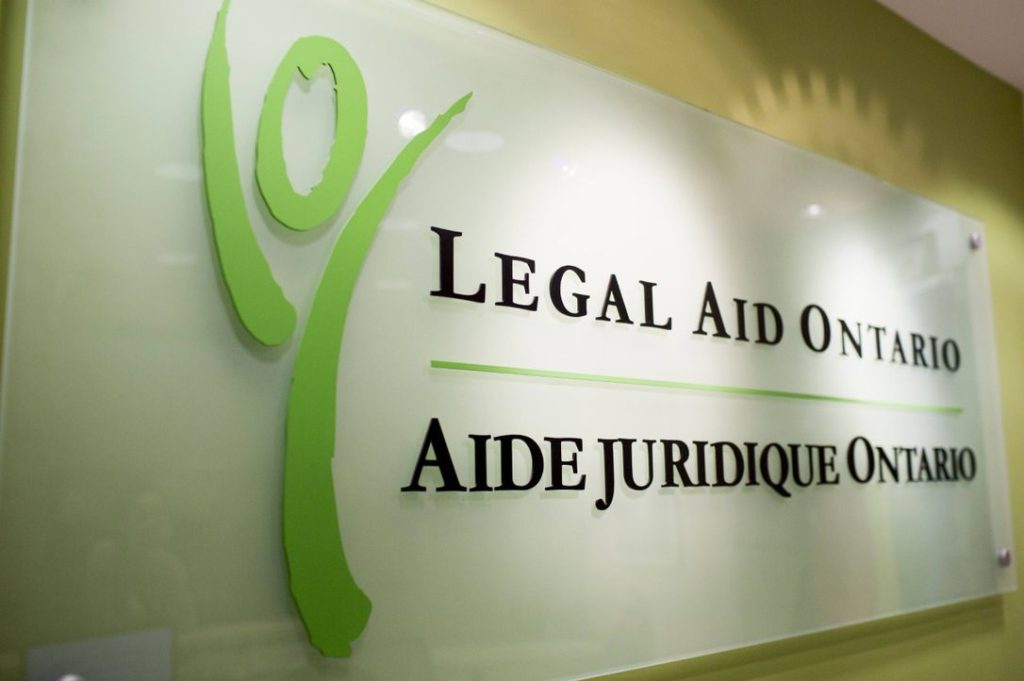 By Andrew Drummond
By Andrew Drummond
April 12, 2019
BURLINGTON, ON

Ontario Finance Minister Vic Fedeli presents the 2019 budget as Premier Doug Ford looks on at the legislature in Toronto on Thursday, April 11, 2019.
Yesterday, the Ford government presented the first budget of its mandate. There are many cuts in the Conservative budget, and many services will be reduced or made ineffective. Health care and education in particular will be severely impacted as the budget commits to lower than inflation increases in health and education spending across the term. However, perhaps as a result of the protests already seen across Ontario, the Ford government held back on tax breaks for corporations.
The corporate tax changes announced use government incentives to encourage investment rather than a flat cut of rates.
TRANSIT
The biggest ticket item in the budget is the one that Ford personally unveiled yesterday, a $10.9 billion investment in Toronto’s transit system. While it is encouraging to see the government address capital transit projects, there are many concerns regarding how it intends to implement those changes. The government plans to add two stops to the Scarborough Subway extension, which will have the effect of replanning the route of the line. In essence, this change will cost the city of Toronto $200 million or more as the efforts to plan and appropriate land to this point need to be ripped up and restarted.
Beyond those big transit announcements though, there was no additional transit funding provided for much of the rest of the province. Nothing to help Burlington buy new buses or plan new routes, nothing to improve regional transportation in the western GTA (or anywhere else). The Conservative budget in terms of transit was entirely focused on Toronto and building underground.

The Conservatives had no problem with letting the deficit rise – even after whacking the Liberals for doing the same thing. Spend – spend – spend.
FISCAL ACCOUNTABILITY AND TAXES
In an unexpected move, the budget does not set Ontario on a course to balance its budget within its first term. The budget foresees spending reductions and economic improvement that bring the budget back to balance by 2024. In fact, the 2019 budget includes $4.9 MORE spending than the 2018 budget from his predecessors.
In what Minister Fedeli described as the “Goldilocks Plan” the government is trying to make cuts that are not too deep to allow Ontario to adjust without it going “too fast”.
In another surprise move, the Conservatives did not follow through on their election promise of a corporate tax cut of 1%. Instead, the government proposed a new tax incentive for businesses that make capital investments in Ontario. While there is certainly an argument against any sort of corporate welfare while cutting government services, the fact that the government changed course to require some investment to offset any tax cut is a welcome tweak on their plans.

There is a positive move on child care financial support.
CHILD CARE
Another new service that the budget includes is a rebate to families for their spending on childcare.
To fit the Conservative ethos of personal choice, the rebate is not tied to using any particular kind of childcare, but allows the family to spend money in any manner and apply for a rebate against it. The rebate is also not specific to region, so despite the incredibly high costs of childcare in some regions relative to others, everyone in Ontario will get the same rebate. It will also do very little for those with the lowest income since people can only get a refund if they had the funds to spend initially.
SENIORS’ DENTAL CARE
In an effort to provide some support to low income seniors, the Conservative budget also includes a $90 million investment in seniors’ dental care, which works out to almost $30 per senior in the province. The reason they can invest so little is the incredibly low income that a senior needs to have in order to qualify for the benefit. A single senior needs to have an income less than $19,300 to qualify for the program. Given that the poverty rate in Halton is $22,133, many seniors below the poverty line are still too “rich” to qualify for the new dental program.
THE DEEPEST CUTS (SOME WITHOUT DETAILS)
From the government summary tables, the long-term targets of cuts becomes apparent. The Ministry of Children’s and Social Services will go from a budget in 2019 of $17 billion to a 2022 budget of $16.0 billion. That is a $1 billion reduction beyond inflation. This budget supports the Children’s Aid Society, ODSP, Autism Family Supports, Shelters for Abused Women, etc. Every one of these services is already stretched to the limit with the meager funding available today, but Ford intends it to be cut by $1 billion over the next 3 years with no explanation as to where.

Shelters for women are not being provided – the need is very real. This location is seen as very high end.
The government previously cut $4 million in announced funding to women’s shelters (despite finding $10 million in new funding Horse Racing), and from the numbers in this budget, that was only the beginning of pain for disadvantaged groups. As has been documented before, in Halton groups like Halton Women’s Place have increasingly relied on private donations to raise the necessary revenue to provide services. As these cuts take hold, this reliance will only get worse.

Few will be able to make use of Legal Aid.
Another ministry that will see drastic cutbacks is the Ministry of Justice. They are going to see a 6% cut in funding over the next 3 years (again, before factoring inflation). One of the primary sources of this cut will be Legal Aid.
Legal Aid will see a $164 million cut (29% of its total budget) over the next 2 years. This is the service providing legal assistance to people in Ontario who make less than $17,731 per year and could otherwise not afford legal representation. Because of the announced cuts, Legal Aid CEO David Field said, “We’re going to have to consider ways to streamline and offer more services online.” The poorest among us will now lose the ability to meet with a lawyer in person, and will have to rely on getting legal advice online.

E-learning Online Education is not for everyone.
The other two Ministries that are concerning in the lack of clarity about how cutbacks will be achieved are the two biggest. Health and Education. Health spending will be capped to increase at levels lower than inflation every year through 2024. The means a real dollar cut to spending every single year that is currently planned. In Education, the yearly increases are so small that in some cases they are just a rounding error (2020 funding $29.8 billion, 2021 funding $29.8 billion) with no accounting for inflation. The government already announced some of the plans to achieve these cuts with forcing students to take 13% of classes online. However, this represents a real spending cut in education for every year of the Ford fiscal plan.
In a nutshell, that is what this budget represents.
In order to give a corporate tax incentive and to protect the wealthiest in Ontario from a tax increase, the Conservative budget is going to force students away from teachers to take classes online. It is going to cut health care spending. It is going to remove legal services from poor Ontarians. It is going to cut services for vulnerable children. It is going to cut services for Ontarians on disability. Those are the priorities of this government.
You have to wonder if those are the priorities of Ontario’s people.
 Andrew Drummond was the NDP candidate for Burlington in the last provincial election. His intention is to do the same thing in the next provincial election.
Andrew Drummond was the NDP candidate for Burlington in the last provincial election. His intention is to do the same thing in the next provincial election.
















Does anyone know what it costs the Government of Ontario to fund the OMB/LPAT Appeal Process? In addition, we have no idea what it costs the municipalities to defend developer appeals.
Perhaps the Government of Ontario should take a very close look at the effectiveness of spending all this money especially since times have changed and the Province mandates the growth plan for municipalities.
Abolishing the OMB/LPAT Appeal Process could save a lot of money, perhaps this needs a closer look.
Hi Penny,
I did a little research, and the budget of the entire Environment and Land Tribunals of Ontario (where LPAT points up to) was only $17 million dollars in 2018. Even if LPAT is responsible for 50% of that, cutting or changing those services would only free up at most $10 million (or 0.012% of the provincial budget) And even then, there would need to be some administration to ensure municipalities followed growth plans.
I’m as frustrated as many about LPAT’s ineffectiveness. One of the NDP’s platform pieces was to reform the body to ensure municipalities would not be pushed into building they were unwilling to support.
A good summary of the budget. Why aren’t you running for the Federal NDP in October?
Hi BJ,
I appreciate the kind words. I am currently focusing my efforts on provincial politics for now, and I do intend to run again in 2022. That said, in a week or two I should be able to announce our federal candidate and I expect you will be very happy with the quality of who will be running in October.